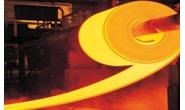Prices

November 5, 2013
West Coast Mills First to Raise Prices
Written by John Packard
California Steel Industries (CSI) and U.S. Steel Posco (UPI) became the first domestic mills to raise flat rolled steel prices as they opened their order books for the month of January 2014.
CSI was the first to release their letter informing their customers that “due to changing market conditions” the mill was increasing their transaction prices as follows:
Hot Rolled $40 per ton ($2.00/cwt)
HRP&O $40 per ton ($2.00/cwt)
Cold Rolled $40 per ton ($2.00/cwt)
Galvanized $60 per ton ($3.00/cwt)
Soon after the CSI announcement, SMU received a letter from one of UPI’s customers essentially following the California Steel price announcement. The UPI letter called for their increase to be effective “immediately” and their HRP&O, cold rolled transaction prices would increase by $40 per ton and galvanized by $60 per ton.
Both California Steel and USS/Posco are conversion mills located in California. CSI produces their products from slabs while UPI converts hot bands.







